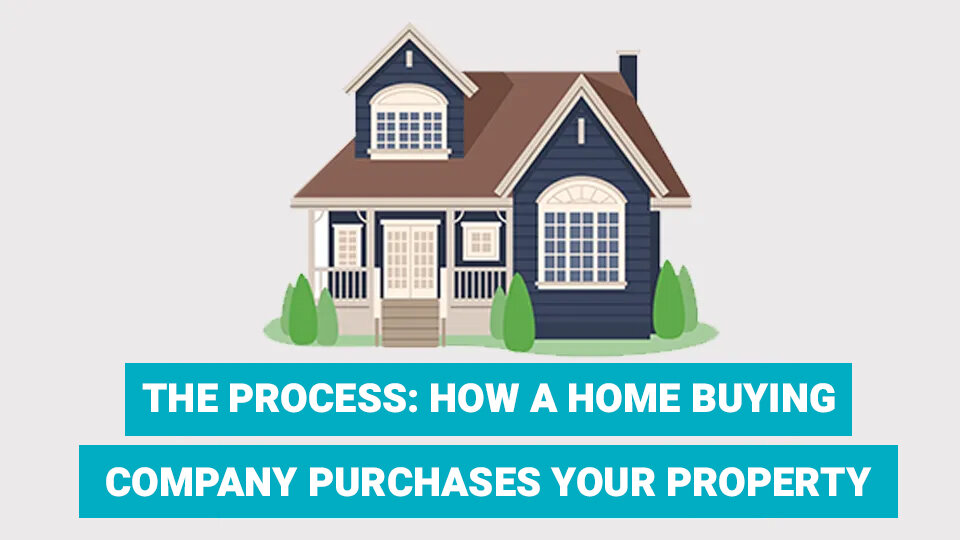
Are you looking to sell your home quickly? A home-buying company might be the solution you need. These companies specialize in purchasing properties directly from homeowners, often with cash offers and quick closings. They can be a great option if you’re in a hurry to sell or want to avoid the traditional real estate market.
Understanding how these companies work is crucial before you decide to sell. The process is different from a typical home sale, and it’s important to know what to expect. In this blog, we’ll walk you through the steps a home-buying company takes to purchase your property, helping you make an informed decision about whether this option is right for you.
Initial Contact and Assessment
When you reach out to a home-buying company, they’ll start with a quick assessment. This initial step helps them understand your situation and property. Here’s what typically happens:
- You contact the company
- They ask about your property
- You provide basic information
- They do a preliminary market analysis
- They decide if it fits their criteria
After this initial contact, the company will determine if your property matches what they’re looking for. If it does, they’ll move forward with the process. Remember, there’s usually no obligation at this stage, so that you can explore your options without commitment.
Property Evaluation
The next step is a more detailed evaluation of your property. This is how the company determines what they’re willing to offer you. Let’s break it down:
On-Site Inspection
A company representative will visit your home and walk through it, noting its condition, features, and any necessary repairs. This inspection will help them assess the property’s value and potential costs.
Market Analysis
The company will research recent sales of similar properties in your area. They use this information to understand the local market and determine a fair price. This analysis considers factors like location, size, and current market trends.
Repair Cost Estimation
If your home needs repairs, the company will estimate the costs and factor this into its offer price. Remember, these companies often buy homes “as-is,” so you won’t need to make the repairs yourself.
Making an Offer
After evaluating your property, the home-buying company will make you an offer. Here’s what you need to know about this stage:
- The offer is usually below market value
- It’s typically a cash offer
- There’s often room for negotiation
- You’re under no obligation to accept
- They may provide a detailed breakdown
The offer will be lower than what you might get on the open market. This is because the company takes on the risk and costs of repairs and resale. However, you benefit from a quick, hassle-free sale. Consider the offer carefully, and don’t hesitate to ask questions.
Negotiation and Acceptance
Once you receive the offer, you have the opportunity to negotiate. This is an important step in the process. Let’s look at how it typically works:
Counter-Offers
If you’re not satisfied with the initial offer, you can make a counteroffer. The company may adjust its price or terms. Be prepared to explain why you think your property is worth more.
Terms Discussion
Besides price, you can negotiate other terms. This might include the closing date or whether you can rent back the property for a short time after the sale. Be clear about what you need.
Final Agreement
Once you and the company reach an agreement, you’ll sign a purchase agreement. This document outlines all the terms of the sale. Make sure you understand everything before signing and don’t hesitate to ask for clarification if needed.
Due Diligence and Closing
After you accept the offer, the home-buying company will start its due diligence process. This is the final step before closing the deal. Here’s what to expect:
- The company reviews property documents
- They may conduct additional inspections
- A title search is performed
- Closing date is set
- The final walkthrough is scheduled
During this phase, the company ensures everything is in order. They’ll handle most of the paperwork, making the process easier for you. If any issues arise, they’ll communicate with you promptly to resolve them.
The Closing Process
The closing is the final step in selling your home to a buying company. It’s usually quicker and simpler than a traditional home sale. Here’s how it typically goes:
Paperwork Signing
You’ll meet with a representative, usually at a title company or attorney’s office. They’ll guide you through the paperwork, including the deed transfer and other legal documents. Make sure you understand everything before signing.
Payment Transfer
Once all documents are signed, you’ll receive your payment. This is usually a cashier’s check or wire transfer. The funds are typically available immediately, which is a big advantage of selling to a home-buying company.
Property Handover
After the payment is complete, you will hand over the keys to the property. Unless otherwise agreed, make sure you have removed all personal belongings. The property now belongs to the home-buying company.
Benefits of Selling to a Home Buying Company
Selling to a home-buying company offers several advantages. These benefits can make it an attractive option for many sellers. Here’s what you can expect:
- Quick sale, often within days
- Cash offer, no financing delays
- No need for repairs or staging
- Avoid real estate agent commissions
- Flexible closing dates
These advantages can be particularly helpful if you’re in a hurry to sell or deal with a difficult property. However, remember that the trade-off is usually a lower sale price compared to the open market.
Considerations Before Selling
Before you decide to sell to a home-buying company, there are some important factors to consider. This decision can have significant financial implications, so it’s crucial to weigh your options carefully. Let’s look at some key points:
Market Comparison
Research your local real estate market. Compare the offer from the home-buying company to what you might get on the open market. Consider how long it might take to sell traditionally and any costs you’d incur.
Financial Implications
Think about your financial situation. Do you need to sell quickly, or can you wait for a potentially higher offer? Consider any mortgage payoff, taxes, or fees that might affect your net proceeds from the sale.
Long-Term Plans
Consider your long-term plans. If you’re planning to buy another home soon, a quick sale might be beneficial. However, if you’re not in a rush, you should wait for a higher offer on the open market.
Conclusion
Selling your home to a buying company can be a quick and convenient option. The process is straightforward, from initial contact to closing, and you can expect a fast sale without the hassle of repairs or showings. However, it’s important to weigh the benefits against the typically lower offer price.
- Understand the entire process.
- Compare with traditional selling methods
- Consider your specific situation and needs
- Don’t hesitate to ask questions
- Seek professional advice if needed
Remember, the right choice depends on your circumstances. Whether you choose a home-buying company or the traditional market, make sure you’re comfortable with your decision. Your home is a valuable asset, and you should feel confident in how you sell it.
Sell Your Home Fast for Cash
If you need to sell your house fast but don’t want the hassle of a traditional home sale, contact Local Guy Buys Houses. We buy houses as-is, with no repairs needed. You can avoid closing costs and realtor commissions, and you can close in as little as seven days. Call 805-205-5999 to get a fast cash offer from our local home buyers.
